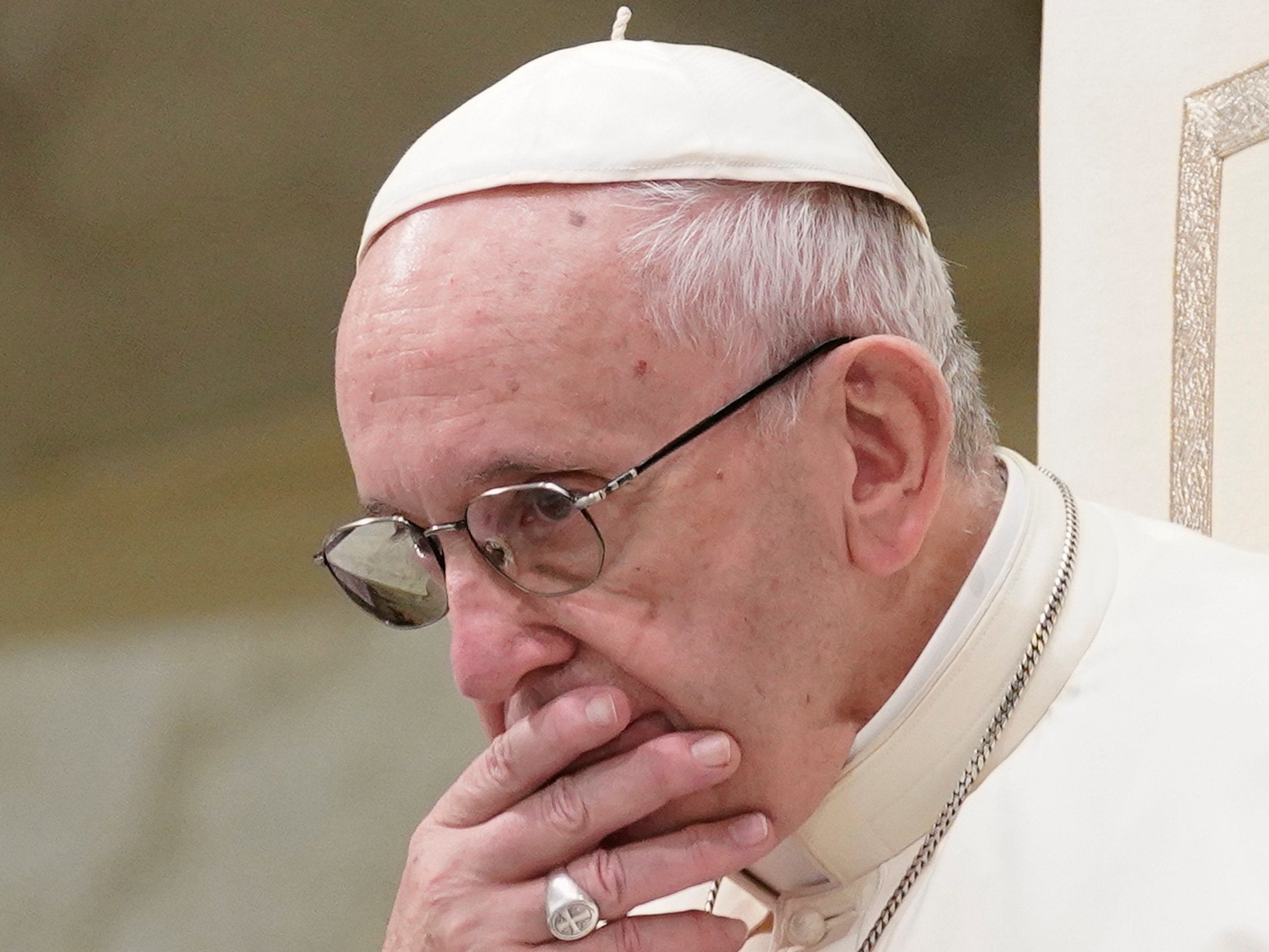Yes, Pope Francis, LGBT+ people do need psychiatric help – because of people like you
I take full responsibility for the things I've done in the past, of course, but I lay a lot of blame at the feet of people like our ol' pal Francis who still tell me on a daily basis that the life I live isn't natural


Here's a sentence I never thought I'd write – I agree with Pope Francis.
During a flight on his trip back to Rome from Ireland, Francis was asked what he would say to parents whose children were gay. He allegedly told journalists that "a lot can be done through psychiatry", suggesting that gay kids should be packed off to a doctor to have their head examined.
And he's inadvertently right. Most LGBT+ people would benefit from counselling or advice from a mental-health specialist – but it's nothing to do with their sexuality or their gender identity. It's because of people like Pope Francis continually regurgitating this toxic rhetoric that there's something wrong with us.
I was born in 1987 – on the same day Pet Shop Boys' "It's a Sin" ominously went to number one, and just a few months before the introduction of Thatcher's homophobic Section 28, which banned the "promotion of the acceptability of homosexuality" in schools. I've spent the past 31 years being told by world leaders, politicians, musicians, actors, teachers, kids in playgrounds and strangers on the street – either directly or indirectly – that, by being gay, I'm suffering from an illness.

But the illness I'm suffering from isn't my sexuality. To paraphrase the drag queen Yekaterina Petrovna Zamolodchikova, the illness I suffer from is the cacophony of demonic voices I'm bombarded with telling me I'm not good enough.
At some point or another, I've suffered from crippling self-esteem and body issues, insecurity and anxiety, and unhealthy relationships with drugs, alcohol and sex. These have manifested in ways that have regrettably pushed away the people I love and care about the most.
I take full responsibility for the things I've done in the past, of course. But I lay a lot of blame at the feet of people like our ol' pal Francis who still tell me on a daily basis that the life I live isn't natural.
I'm not saying all LGBT+ people would benefit from or even need counselling, but I know that I'm not alone. The Mental Health Foundation states that people identifying as LGBT+ are at higher risk of experiencing poor mental health and are more likely to face issues such as depression, suicidal thoughts, self-harm and substance misuse. The government's own national LGBT+ survey, published last month, found that 24 per cent of respondents had accessed mental health services in the 12 months preceding the survey, and we'll never know the true number of those who are suffering in silence.
But I'm getting better. And to those who are suffering in silence, I want you to know that counselling has played a part in that, but so has simply talking about my problems with the people I care about. Despite the intention in the pontiff's alleged words, I urge anyone who's struggling – no matter how – to speak with someone: a health care professional, a loved one, or one of the charities who are there for the betterment of people like us. And if you're scared to talk in person, there are resources online and chat facilities, which means you can retain your anonymity. From someone who's lost a lot, even though it can be tough, the consequences of staying silent are just too dire.
There's nothing unnatural or wrong about loving someone of the same sex. The only thing that's wrong is believing that's a problem to be corrected.
If you have been affected by this article, you can contact London Friend, MindOut and Switchboard LGBT for support. Other mental health organisations you can contact include:
mind.org.uk
beateatingdisorders.org.uk
nhs.uk/livewell/mentalhealth
mentalhealth.org.uk
samaritans.org
Join our commenting forum
Join thought-provoking conversations, follow other Independent readers and see their replies
Comments
Bookmark popover
Removed from bookmarks